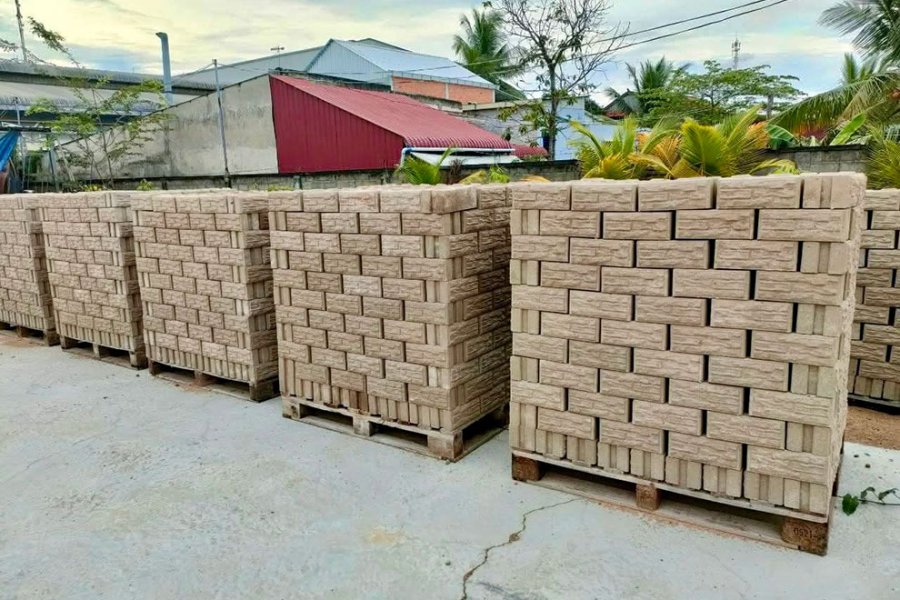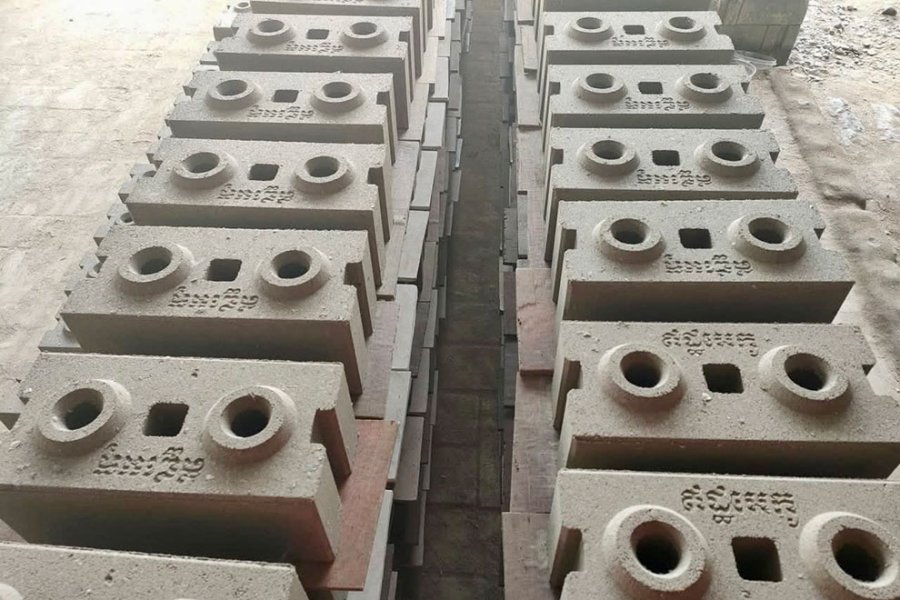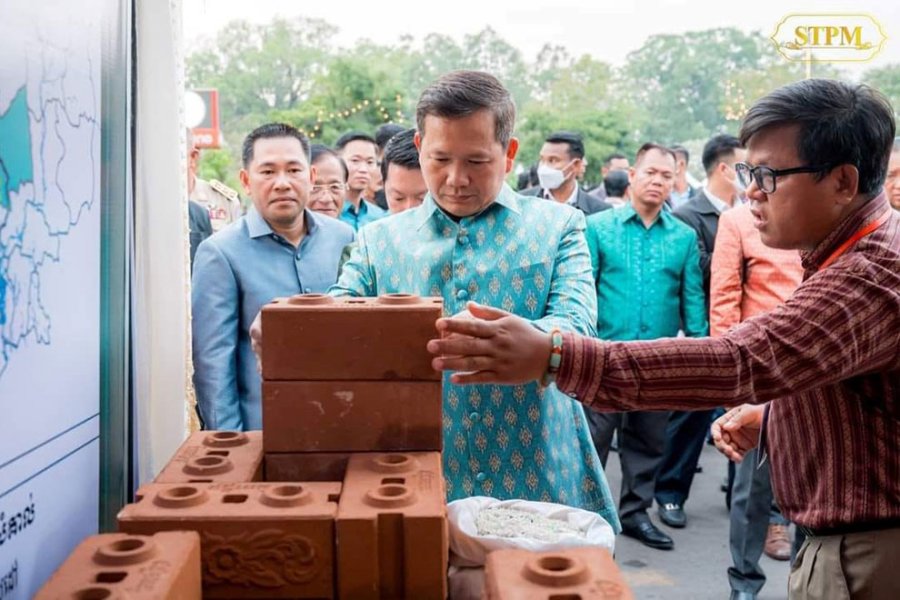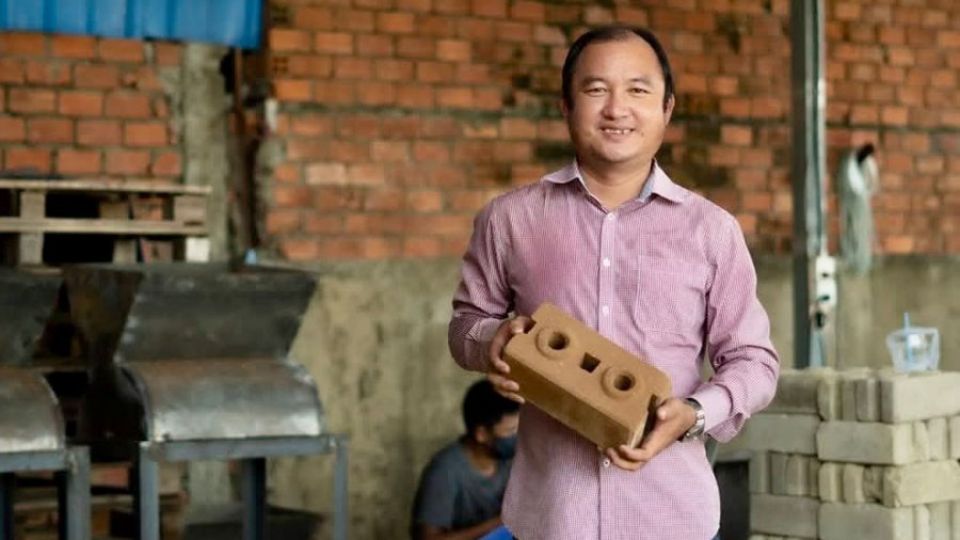January 10, 2025
PHNOM PENH – A company that recycles tonnes of plastic waste into “eco-bricks” is garnering significant support across the Kingdom. To meet customer demand and increase waste upcycling, the eponymously named Eco-Bricks company has recently sold its franchise model to 10 new companies.
Sok Thy, founder of Eco-Bricks, sat down with The Post to talk about the success of his company, as well as the importance of its work.
He explained how his business model has contributed to the reduction of plastic waste that would otherwise be discarded or incinerated, releasing toxic fumes which are harmful to human and animal health and polluting the air.
Thy shared how companies purchasing his business model can produce eco-bricks, using plastic waste as one of the raw materials.
“I teach them how to set up the machinery they need so that they can produce eco-bricks with the same quality as those produced by the parent company,” he said.
Before convincing other companies to invest, he researched similar products that could be found abroad.

Manufacturing each brick requires about two kilogrammes of plastic waste. PHOTO: SUPPLIED/THE PHNOM PENH POST
“Before I started my plastic recycling enterprise, I studied many techniques in Thailand, Malaysia, the Philippines, China and India, and also took lessons online,” he recalled.
The Eco-Bricks factory commenced operations in 2019, collecting 5 to 10 tonnes of plastic waste per month from NGOs and private companies to produce bricks for the construction industry.
He noted that he initially began operations with limited capital and raw materials.
Without a plastic crusher, his team had to use scissors and knives to cut the plastic into small pieces that were suitable for processing.
“Two kilogrammes of plastic is enough to make one brick, and each brick costs 1,000 riel. Customers can choose from three types: Lanto bricks, wood-based bricks and regular bricks,” said Thy.

Eco-bricks are claimed to last over 100 years and be 5 to 6 times stronger than standard red clay bricks. PHOTO: SUPPLIED/THE PHNOM PENH POST
His business processes between 2 and 3 tonnes of plastic waste per month by grinding the plastic into a powder and mixing it with raw materials such as soil, sand and cement before pressing it into moulds to produce the bricks.
In addition to using plastic waste in construction, he also strives to reduce the environmental impact of the production process.
“We do not use kiln-dried wood to dry the bricks; our production chain follows the water technique and a non-drying chamber,” Thy said.
“This also helps prevent deforestation and reduces production costs. Our bricks last over 100 years and are five to six times stronger than standard red clay bricks,” he added.

Prime Minister Hun Manet examines the bricks during the 8th Siem Reap River Festival in March 2024. PHOTO: SUPPLIED/THE PHNOM PENH POST
To date, Eco-Bricks has won four different awards, including the Khmer Enterprise Entrepreneur of the Year.
Thy believes the success of his company has contributed to inspiring Cambodians to understand the benefits of recycling waste and change their mindset from discarding or burning plastic.
According to the Ministry of Environment, more than 10,000 tonnes of rubbish are collected in Phnom Penh every day. Twenty percent of the waste is plastic, of which only 10 percent is recycled.
The Eco-Brick parent factory is located in Kandal province’s Takhmao, and can be found on social media at khecobricks.


